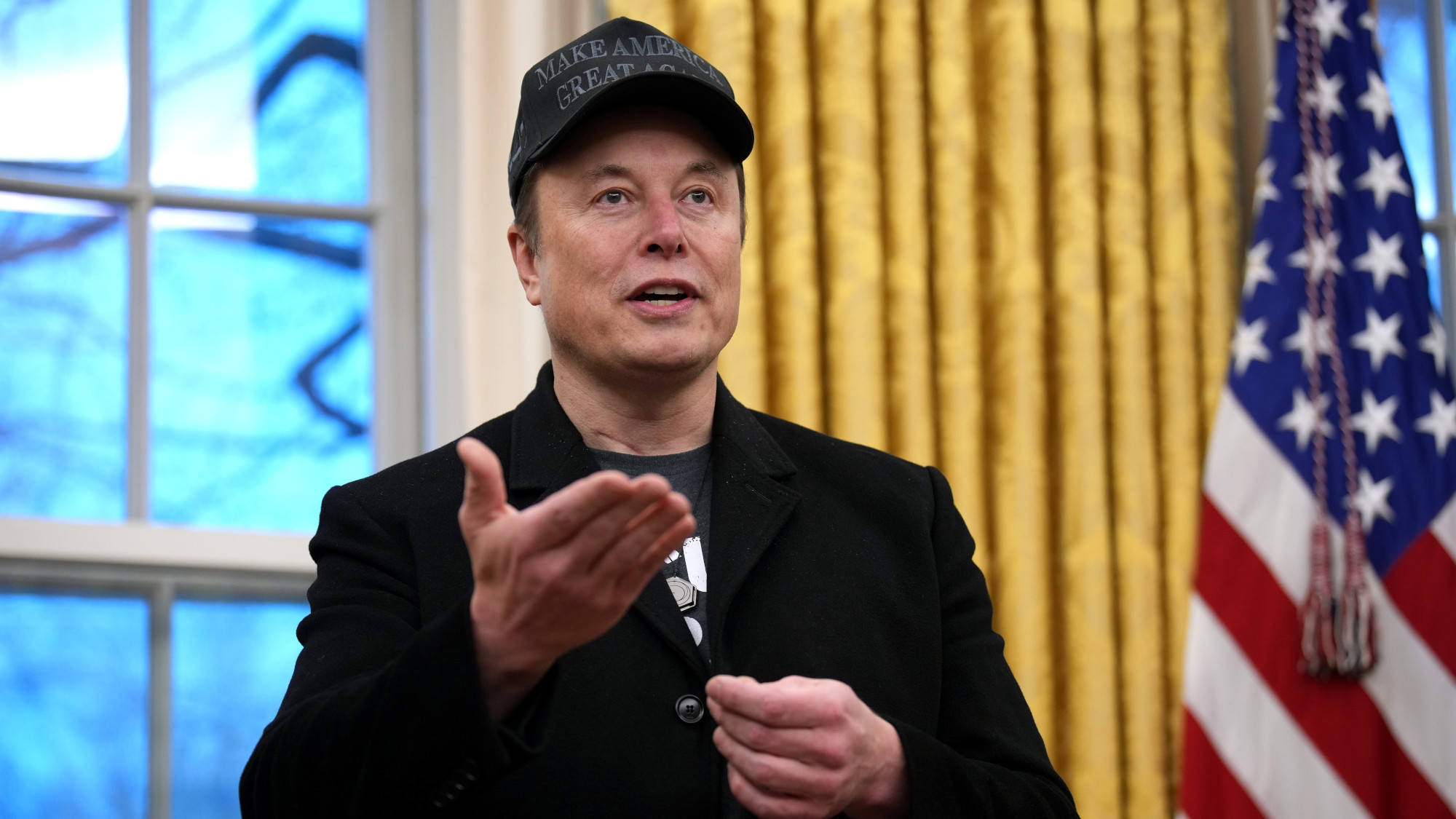Editor's letter: The shifting polls
As Big Data gets bigger, we get better at analyzing and predicting the course of hurricanes and flu epidemics, but the course of human actions resists such forecasting.
A free daily email with the biggest news stories of the day – and the best features from TheWeek.com
You are now subscribed
Your newsletter sign-up was successful
We’ve heard an awful lot about shifting polls in the last week, as President Obama’s apparently rock-solid lead dissolved after a single debate with Mitt Romney. Whether you despair or rejoice at that outcome, it reveals a basic political reality that the fancy modern science of political campaigning might have obscured. All the careful formulations on health care, all the calibrated appeals to women and Hispanic voters, all those millions of dollars’ worth of television ads designed around granular research into the American voters’ fears and desires—none of it moved the needle as much as an old-fashioned mano a mano battle.
That may unsettle political quants who thought they had this election all figured out, but it won’t have come as a surprise to Nate Silver. The founder of the blog FiveThirtyEight.com predicted the 2008 election correctly in 49 states, and was subsequently hired by The New York Times. Yet in his fascinating new book, The Signal and the Noise (see Reviews: Books), he argues that human action has proven devilishly resistant to analysis, and thus to accurate prediction. As Big Data gets bigger, we get better at predicting the course of hurricanes and flu epidemics. Yet, as Silver says, “There is no reason to conclude that the affairs of men are becoming more predictable. The opposite may be true.” His account of the monumental failures to predict the financial crisis, for instance, shows how desperately we seek data that confirms our predilections—and how easy it is to find. That’s something to remember as we all assess the analyses and predictions of “experts” in this nail-biting campaign drama. The truth won’t come until Election Day.
James Graff
The Week
Escape your echo chamber. Get the facts behind the news, plus analysis from multiple perspectives.

Sign up for The Week's Free Newsletters
From our morning news briefing to a weekly Good News Newsletter, get the best of The Week delivered directly to your inbox.
From our morning news briefing to a weekly Good News Newsletter, get the best of The Week delivered directly to your inbox.
A free daily email with the biggest news stories of the day – and the best features from TheWeek.com
-
 Ex-South Korean leader gets life sentence for insurrection
Ex-South Korean leader gets life sentence for insurrectionSpeed Read South Korean President Yoon Suk Yeol was sentenced to life in prison over his declaration of martial law in 2024
-
 At least 8 dead in California’s deadliest avalanche
At least 8 dead in California’s deadliest avalancheSpeed Read The avalanche near Lake Tahoe was the deadliest in modern California history and the worst in the US since 1981
-
 Political cartoons for February 19
Political cartoons for February 19Cartoons Thursday’s political cartoons include a suspicious package, a piece of the cake, and more
-
 The billionaires’ wealth tax: a catastrophe for California?
The billionaires’ wealth tax: a catastrophe for California?Talking Point Peter Thiel and Larry Page preparing to change state residency
-
 Bari Weiss’ ‘60 Minutes’ scandal is about more than one report
Bari Weiss’ ‘60 Minutes’ scandal is about more than one reportIN THE SPOTLIGHT By blocking an approved segment on a controversial prison holding US deportees in El Salvador, the editor-in-chief of CBS News has become the main story
-
 Has Zohran Mamdani shown the Democrats how to win again?
Has Zohran Mamdani shown the Democrats how to win again?Today’s Big Question New York City mayoral election touted as victory for left-wing populists but moderate centrist wins elsewhere present more complex path for Democratic Party
-
 Millions turn out for anti-Trump ‘No Kings’ rallies
Millions turn out for anti-Trump ‘No Kings’ ralliesSpeed Read An estimated 7 million people participated, 2 million more than at the first ‘No Kings’ protest in June
-
 Ghislaine Maxwell: angling for a Trump pardon
Ghislaine Maxwell: angling for a Trump pardonTalking Point Convicted sex trafficker's testimony could shed new light on president's links to Jeffrey Epstein
-
 The last words and final moments of 40 presidents
The last words and final moments of 40 presidentsThe Explainer Some are eloquent quotes worthy of the holders of the highest office in the nation, and others... aren't
-
 The JFK files: the truth at last?
The JFK files: the truth at last?In The Spotlight More than 64,000 previously classified documents relating the 1963 assassination of John F. Kennedy have been released by the Trump administration
-
 The end of empathy
The end of empathyOpinion Elon Musk is gutting the government — and our capacity for kindness